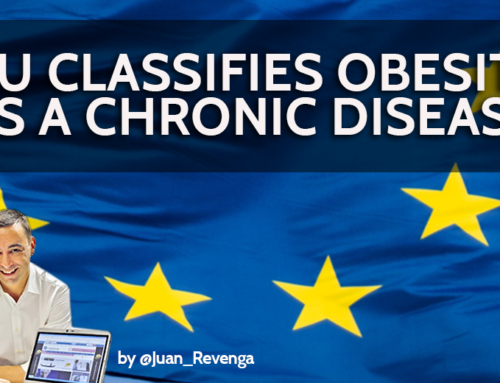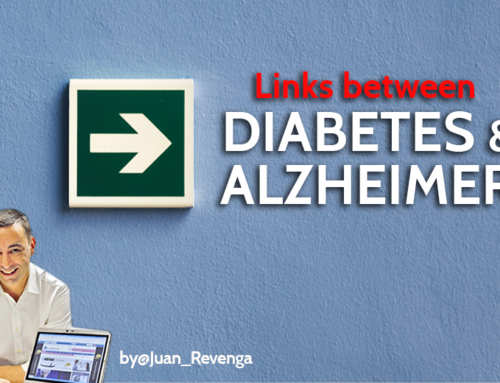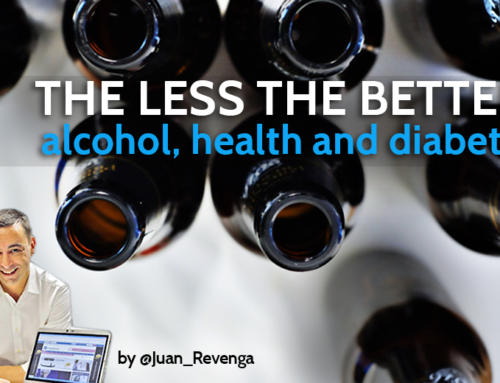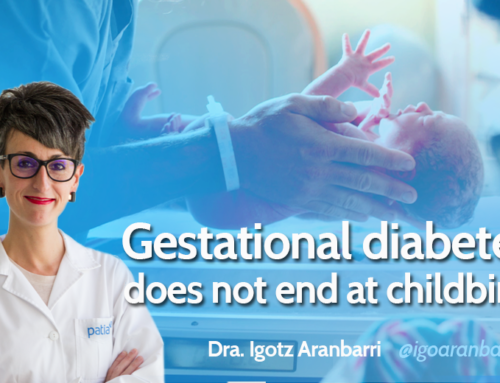New hopes of a cure for type 2 diabetes
Recent research provides a glimmer of hope not only for the dietary treatment of type 2 diabetes, something we were already familiar with, but also for its cure.
 Type 2 diabetes has traditionally been considered a chronic and incurable disease with treatment focussed on food, oral antidiabetic drugs and, if necessary, the periodic administration of insulin. Also, in the majority of cases, once the patient had been diagnosed, they faced a progressive escalation of treatment, always beginning with the compulsory compliance with a series of dietary recommendations, the use of pharmaceuticals via oral to control glycemia (oral antidiabetic drugs) and, if the disease progressed sufficiently to make it necessary, the provision of insulin. As the years with diabetes mount up, even if it is controlled, the outlook regarding health complications is less than rosy.
Type 2 diabetes has traditionally been considered a chronic and incurable disease with treatment focussed on food, oral antidiabetic drugs and, if necessary, the periodic administration of insulin. Also, in the majority of cases, once the patient had been diagnosed, they faced a progressive escalation of treatment, always beginning with the compulsory compliance with a series of dietary recommendations, the use of pharmaceuticals via oral to control glycemia (oral antidiabetic drugs) and, if the disease progressed sufficiently to make it necessary, the provision of insulin. As the years with diabetes mount up, even if it is controlled, the outlook regarding health complications is less than rosy.
Among the determining factors of this pathology, as you know, on the one hand genetic predisposition stands out (which nowadays can be quantified to a certain extent) and, on the other hand, lifestyles, especially food and physical activity patterns.
 However, recent studies focussed on dietary treatment of type 2 diabetes have provided a glimmer of hope in this bleak scene. The latest, published in the prestigious magazine Diabetes Care made it clear that a solid programme of weight loss brought about the remission of diabetes for at least six months in 40% of the patients studied. Entitled Very Low-Calorie Diet and 6 Months of Weight Stability in Type 2 Diabetes: Pathophysiological Changes in Responders and Nonresponders, this study observed that 13 of the diabetic patients studied (from a total of 30 participants) were capable of normalising their values of insulin in the bloodstream as well as improving the sensitivity of this hormone when it comes to carrying out its function to levels outside the diagnostic margins of diabetes. All this after following a two-month dietary programme consisting of a very low-calorie diet (or VLCD) and four further months of controlled but more or less free eating.
However, recent studies focussed on dietary treatment of type 2 diabetes have provided a glimmer of hope in this bleak scene. The latest, published in the prestigious magazine Diabetes Care made it clear that a solid programme of weight loss brought about the remission of diabetes for at least six months in 40% of the patients studied. Entitled Very Low-Calorie Diet and 6 Months of Weight Stability in Type 2 Diabetes: Pathophysiological Changes in Responders and Nonresponders, this study observed that 13 of the diabetic patients studied (from a total of 30 participants) were capable of normalising their values of insulin in the bloodstream as well as improving the sensitivity of this hormone when it comes to carrying out its function to levels outside the diagnostic margins of diabetes. All this after following a two-month dietary programme consisting of a very low-calorie diet (or VLCD) and four further months of controlled but more or less free eating.
The study, which is not the first along these lines of research, is part of the work of Dr Roy Taylor in pursuit of a treatment capable of “rewinding” the metabolic situation of the patients back to the time when they did not suffer from type 2 diabetes.
Among the most interesting results of the aforementioned study by Dr Taylor, the following stand out:
 40% of the diabetic patients who responded to treatment with a VLCD taking back their type 2 diabetes did so without resort to bariatric surgery, that is, they obtained these results with the described dietary treatment alone.
40% of the diabetic patients who responded to treatment with a VLCD taking back their type 2 diabetes did so without resort to bariatric surgery, that is, they obtained these results with the described dietary treatment alone.- They kept diabetes at bay for at least 6 months, at which point the study ended, after having returned to a normalised diet (remember that the VLCD was applied for two months only).
- A large proportion of the responsive patients (those whose diabetes was “cured” at the end of the trial) were people who had been diagnosed with type 2 diabetes more than 5 years ago, and there were even patients who had had diagnosed diabetes for more than 10 years.
Although a large number of experts on the subject praise the results of this study, they are also doubtful regarding the maintenance of the results. One such case is Dr George King, scientific director of Joslin Diabetes Center and professor at Harvard Medical School, who considers the maintenance of the weight loss to be the greatest difficulty, in addition to the possible challenge to patients of living a “free” life when returning to normal eating habits.
In any case, I am of the opinion that these studies should change the perspective of many health professionals regarding type 2 diabetes. And this is not the end. The next step, already underway, consists of carrying out a similar study to the one referred to above, but longer-term, lasting for as long as two years.
By Juan Revenga, dietician-nutritionist and biologist
Latest posts by Juan Revenga (see all)
- New hopes of a cure for type 2 diabetes - 16 September, 2016
- Hydration, calories and diabetes: a dangerous triangle - 19 July, 2016
- The myths of breakfast (or the “most important” meal of the day) - 22 June, 2016








